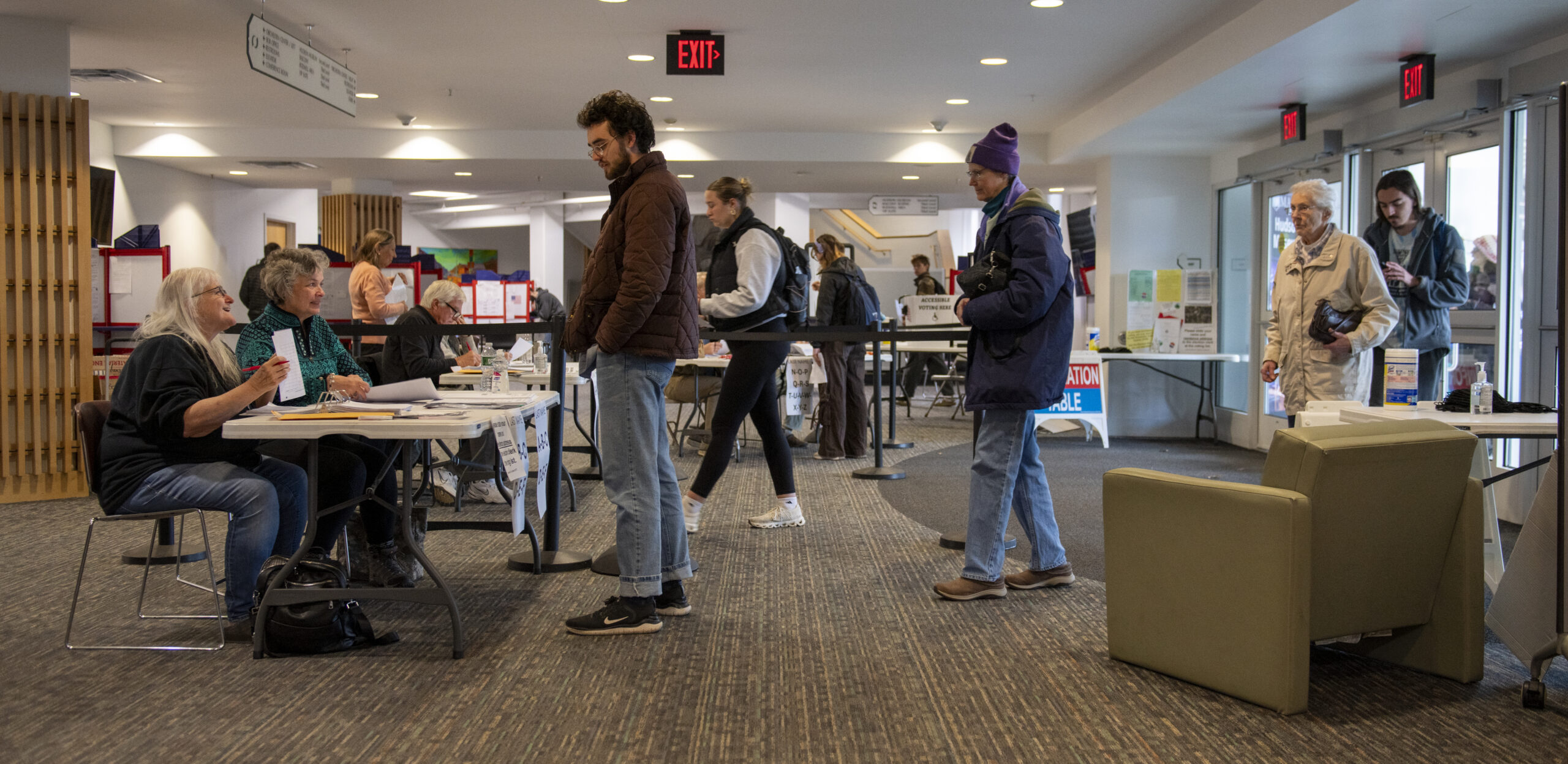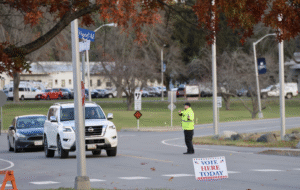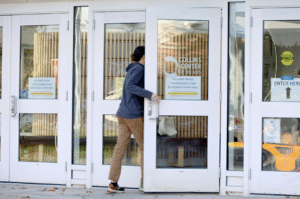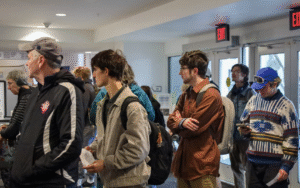EDITORIAL: On Nov. 4, Mainers voted on two referendum questions, both of which were citizen initiatives. Question 1 failed to pass while Question 2 passed.
Voting in state and local elections is just as crucial as voting in presidential and congressional races because these results give local governments the power to shape the services and programs people rely on every day, such as schools, public transportation, roads, infrastructure, parks, public safety and business development.
Question 1 on the ballot asks: “Do you want to change Maine election laws to eliminate two days of absentee voting, prohibit requests for absentee ballots by phone or family members, end ongoing absentee voter status for seniors and people with disabilities, ban prepaid postage on absentee ballot return envelopes, limit the number of drop boxes, require voters to show certain photo ID before voting, and make other changes to our elections?”
Maine’s rejection of the Republican-backed ballot initiative, which aimed to impose new photo ID requirements and limit absentee voting, was a win for Democratic voting rights advocates, who argued that the measure would threaten fair and accessible elections.
Question 2 then asked: “Do you want to allow courts to temporarily prohibit a person from having dangerous weapons if law enforcement, family, or household members show that the person poses a significant danger of causing physical injury to themselves or others?”
Even though voters passed this ballot measure, also referred to as a “red flag law,” it will not replace Maine’s existing yellow flag law. Both will be in effect, providing two distinct procedures for temporarily confiscating firearms from individuals deemed dangerous.
The 2023 Lewiston mass shooting, which left 18 people dead and 13 wounded, prompted a reevaluation of the state’s gun laws.
Tuesday’s referendum marked the first time voters had the chance to weigh in on a firearms-related proposal since the tragic event, and they cast their votes with the weight of urgency and grief hanging over them, choosing between a simple “yes” or “no.” The outcome reflects the majority’s stance in the wake of losses from gun violence.
Maine’s high voter turnout reflects an acknowledgment of the urgency of these two issues. This attitude and mindset toward voting should be maintained in all future elections, regardless of their scale or level of controversy and media coverage.
Voting in any election is about more than just showing off an “I voted” sticker on social media.
Casting a local ballot has equally influential and long-term effects on underrepresented and marginalized communities. Therefore, low voter turnout often leads to decisions that don’t reflect their interests or needs.
Voting is a fundamental civic duty and privilege for all American citizens. Meaningful change often begins at the local level, which makes participating in these elections imperative. Maine’s firm opposition to Question 1 and support for Question 2 not only reflect the right choices but also demonstrate the people’s commitment to civic engagement and the importance of continued participation in future elections.














